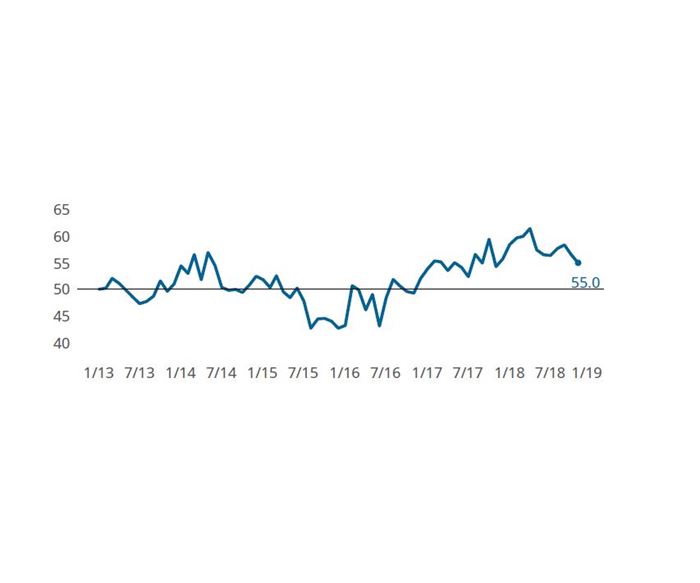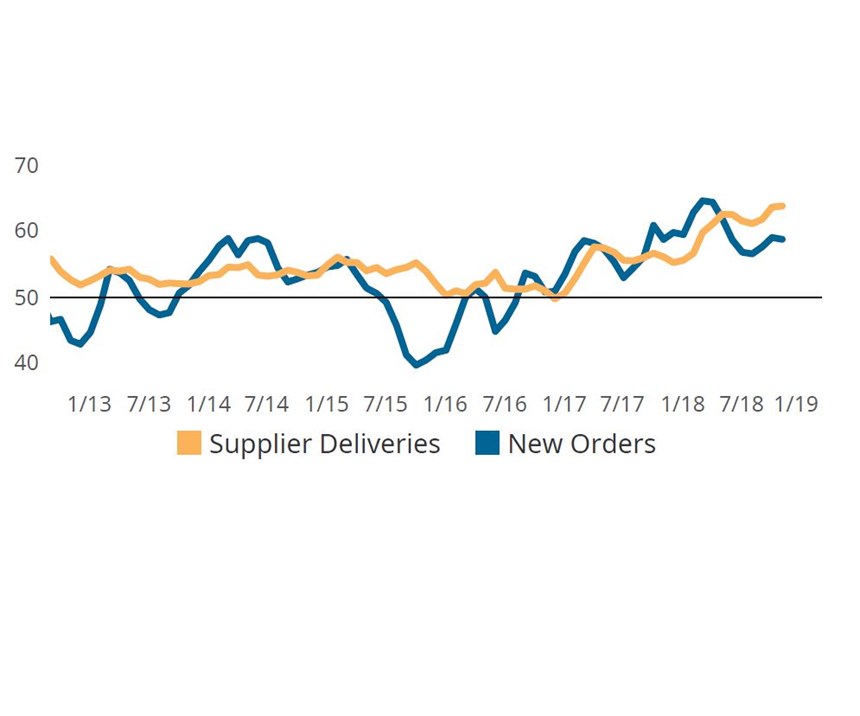Index expands on supplier deliveries and improved exports
The GBI: Composites Fabricating Index registers a 55.0 reading for November 2018, pulled higher by supplier deliveries and exports.
The GBI: Composites Index for November registered 55.0, very nearly matching the Index’s average expansion rate of 55.1 in 2017. November’s reading slightly lowers the year-to-date average reading to 57.9. Barring an unprecedented fall in the Index in December, 2018 is almost certain to claim the title of fastest expanding calendar year for the Index since at least 2012. Compared to the same month one year ago, the Index is 1.2% higher. Gardner Intelligence’s review of the underlying data indicates that the November Index was pulled higher by supplier deliveries, new orders and production. The Index — calculated as an average — was pulled lower by employment, backlogs, and exports. No components of the Index experienced contraction during the month.
For a third consecutive month, supplier deliveries continued to be the fastest expanding component of the Index. This may be due in part to the wave of new orders which swept through the industry in the first half of the year. Compared to past years, supplier deliveries readings have been exceptionally strong in 2018, particularly in recent months. As the industry’s supply chains continue to grow, production rates have also grown at record levels. The net result has been made apparent by the recently slowing growth in backlogs. Backlogs have grown every month in 2018, making this the longest continuous period of backlog growth in the industry’s recorded history.
Related Content
-
Composites manufacturing for general aviation aircraft
General aviation, certified and experimental, has increasingly embraced composites over the decades, a path further driven by leveraged innovation in materials and processes and the evolving AAM market.
-
Plant tour: Middle River Aerostructure Systems, Baltimore, Md., U.S.
The historic Martin Aircraft factory is advancing digitized automation for more sustainable production of composite aerostructures.
-
Next-generation airship design enabled by modern composites
LTA Research’s proof-of-concept Pathfinder 1 modernizes a fully rigid airship design with a largely carbon fiber composite frame. R&D has already begun on higher volume, more automated manufacturing for the future.

.jpg;width=70;height=70;mode=crop)













